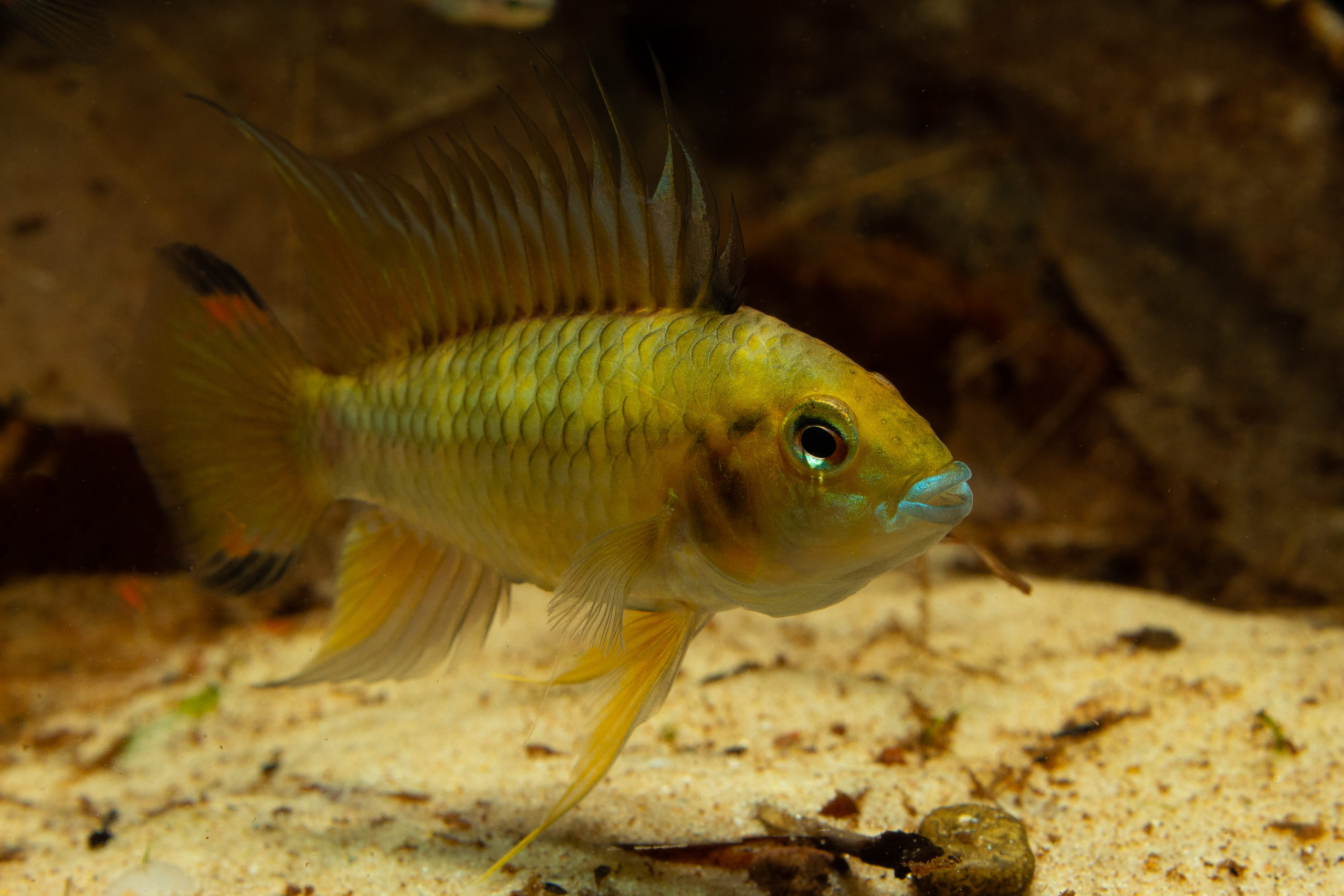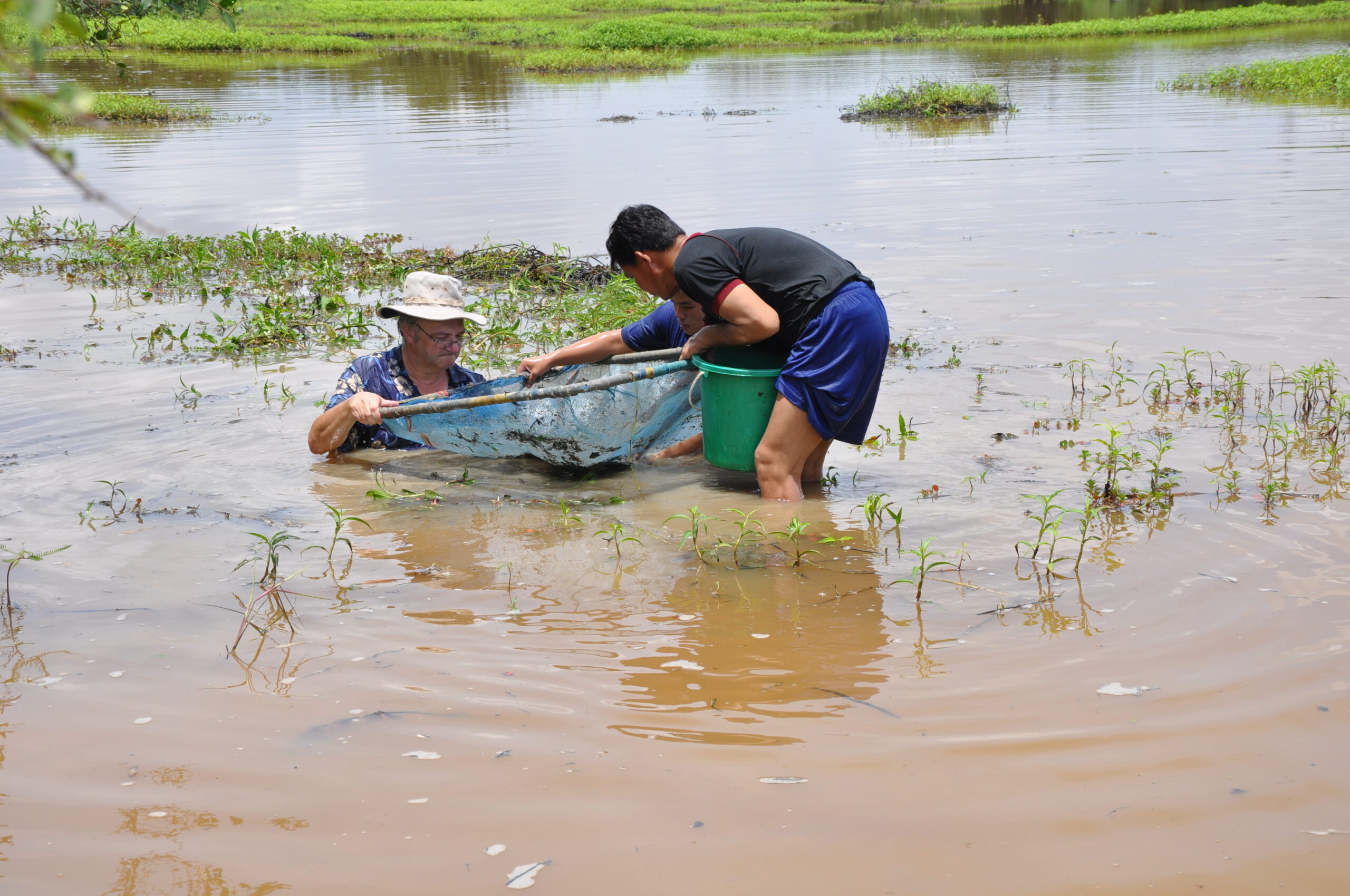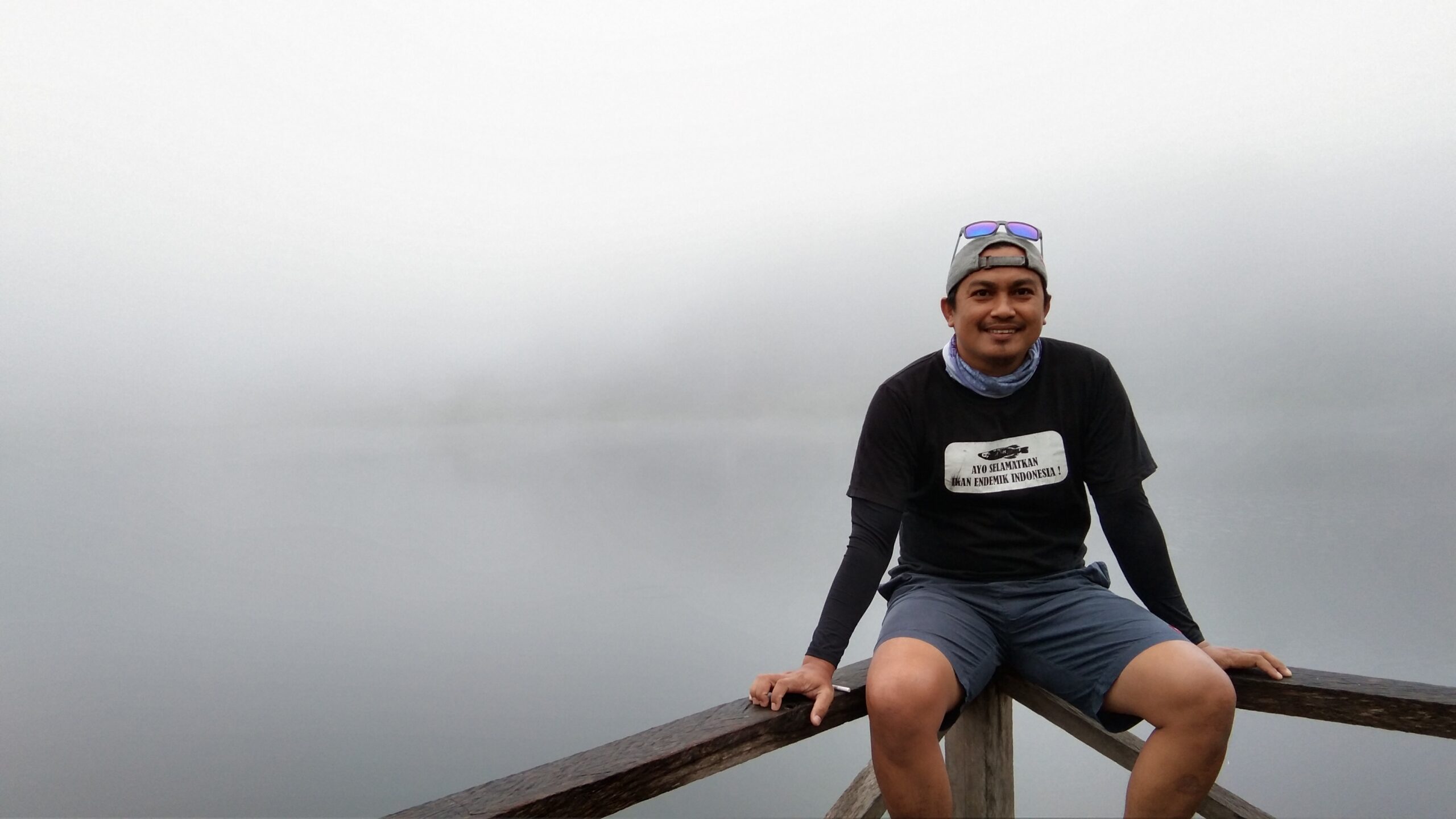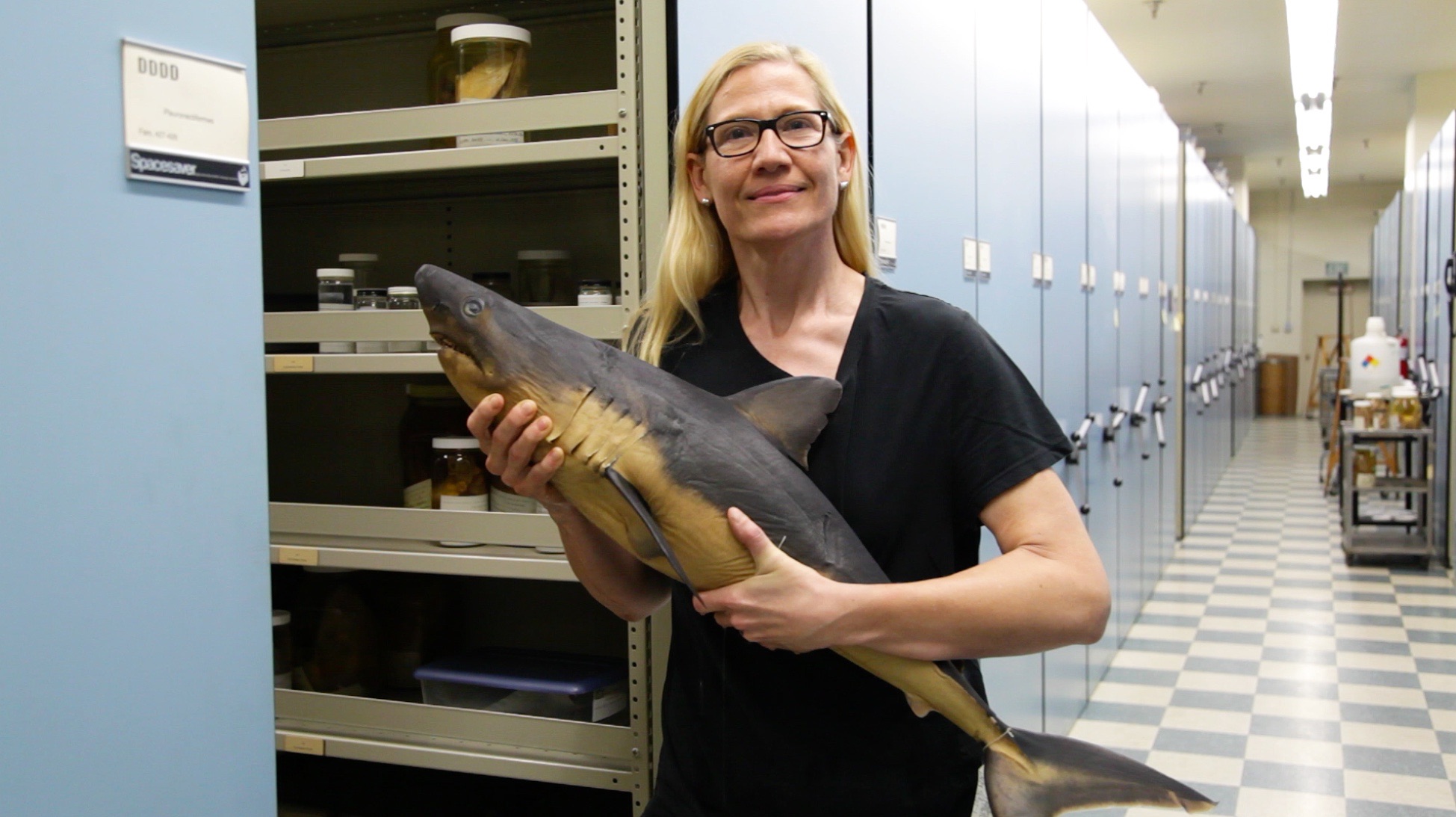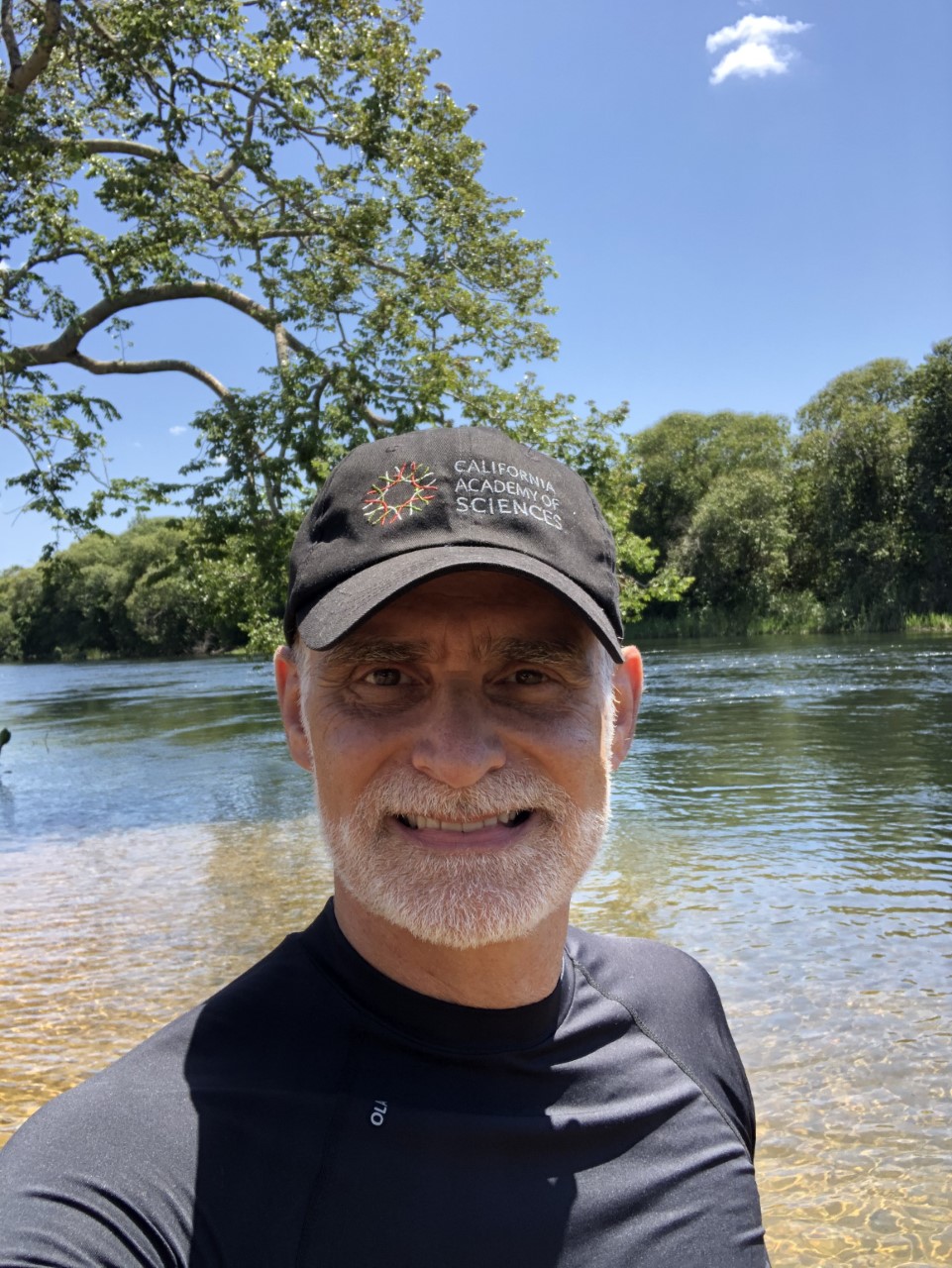An interview with Max Pedley
What initially drew you into keeping fish?
I suppose I’ve always been around animals, a goldfish being my first pet. My late grandma was very supportive of my interest in the natural world and happily obliged when I dragged her around almost every aquarium, zoo and butterfly house in the North! On a more serious aquarist level, my interest peaked in aquatic lessons at college and work experience in a local pet shop. One tank became two, so on and so forth until I find myself here.
Funnily enough, the college that lead my down this path is now my workplace. Seems I have gone the full circle!
What do you enjoy most about fishkeeping?
That’s a tricky one to answer. On the one hand, observing and experiencing different behaviours and survival strategies is thoroughly enthralling. On the other, it’s difficult to beat the endorphin kick when you finally manage to spawn a difficult species that’s been hexing you for a few years. But it’s different for everyone, hence it is such a diverse and popular hobby.

Max at home © Max Pedley
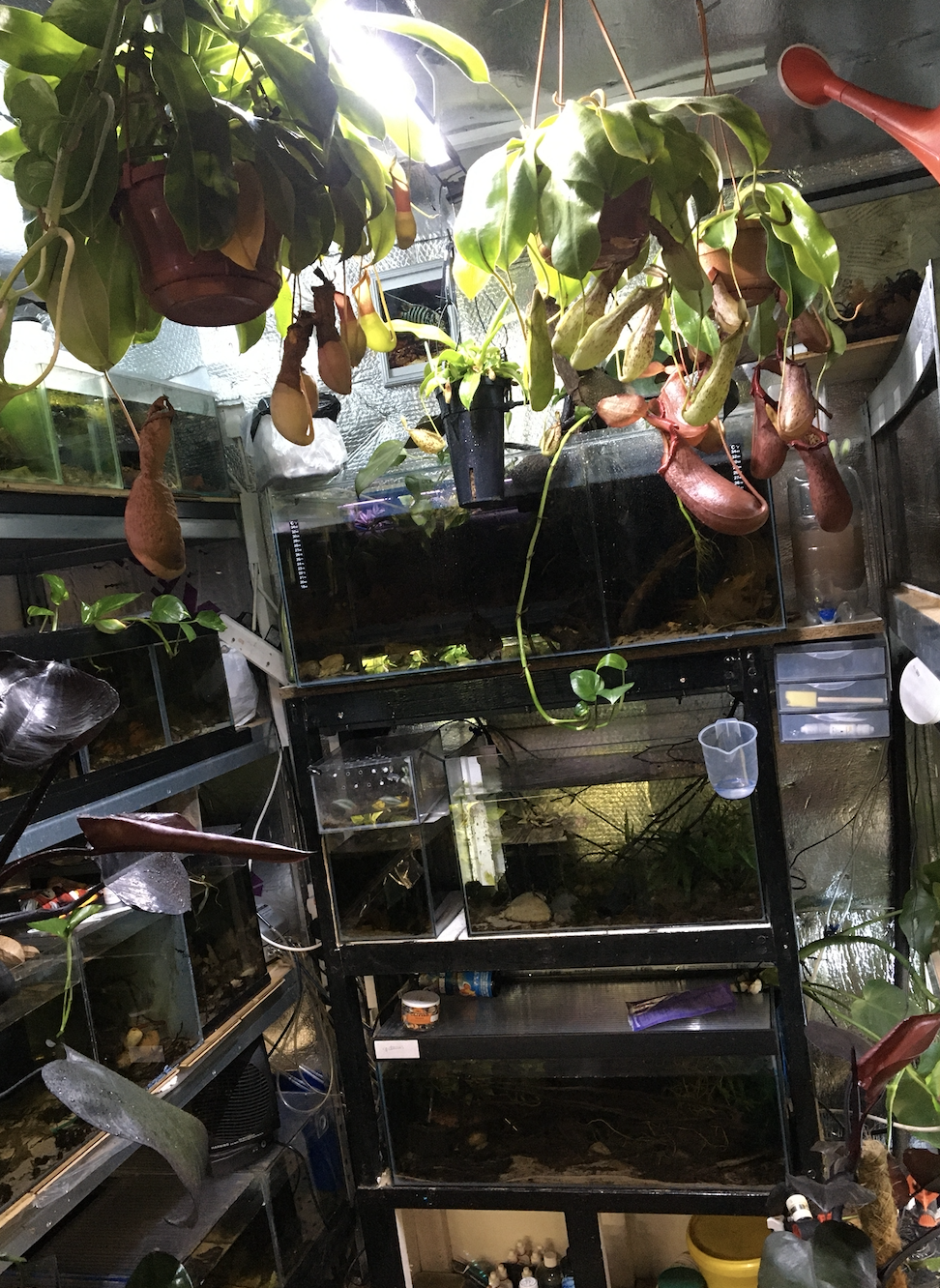
Max’s fish room © Max Pedley
What are your favourite species to keep, and why?
Apistogramma are “my” fish. That is, they were the genus of cichlids that dragged me into the hobby at the deep end. I’ve poured so much effort into them to be rewarded with failure and success in equal proportions, yet I always go back for more. New species are being discovered and described regularly too, so that keeps them exciting. I do however have a massive soft spot for characins and betta spp., especially if they are rare or endangered.
Do you feel aquarists have a duty towards the animals and habitats that interest them?
That’s an excellent question. Everyone has a duty towards nature. It should be considered the rent we pay for our space on Earth. I don’t even think that should be aimed specifically at the animals they are interested, but if they are happy to go the extra mile for them, it should not be ignored.
It’s hard to say exactly what duty aquarists play. Ex situ breeding of threatened/endangered species and research on the captive care of such species would be very useful, especially for zoos etc. who only have a finite amount of tanks for such purposes.
Purchasing responsibly sourced livestock is a duty too. Any keeper with a moral compass should know this, as should the retailers and wholesalers importing the fish. Unfortunately, it is difficult to police in foreign counties, so emphasis must be placed on ceasing the demand.
What role do you think the average hobbyist plays in conservation?
Alas, I imagine the average hobbyist plays a very small role in conservation. It isn’t currently easy for the average hobbyist to get involved in such programmes. Not only that, many hobbyists don’t care for the animals in the wild. Unfortunately, charisma of an organism plays a huge role in how well it is conserved but given that most of the fish which need our help are small and brown, they are serially overlooked. If Cardinal tetras were at risk, that would be a different story.
And what role do you feel they should play?
Horses for courses. Entry level aquarists, those with one tank in the living room, brimmed with a teaming collection of colourful community fish probably have no intention of spending either money or time on conservation. And you can’t blame them. They might be aware of habitat loss, but do they truly understand the gravity of it? Most of the fish they keep are farmed in Southeast Asia and Eastern Europe, so conservation doesn’t directly affect their fishkeeping experience.
And so the onus should really shift to retailers. Retailers who are happy to import wild caught stock might want to consider setting aside a portion of proceeds to help conservation efforts, securing the future of their potential wares. As a matter of fact, would it not make sense for any business person who profits from wild caught fish to see a percentage go back to the wild?
Experienced, hardcore keepers can put the groundwork in. Try to raise awareness, encourage a family member, friend or colleague to buy a tank and fill it with fish to help the trade. If the trade is successful, it is more likely to help conservation in a financial sense. Or even try your hand breeding and maintaining a species at risk. Why not join a club which aims at the successful captive maintenance of particular fish? And if you can’t find such a group, consider starting one! Be proud of what you do, shout it from the rooftops and make sure everyone understands the dangers which freshwater species face.
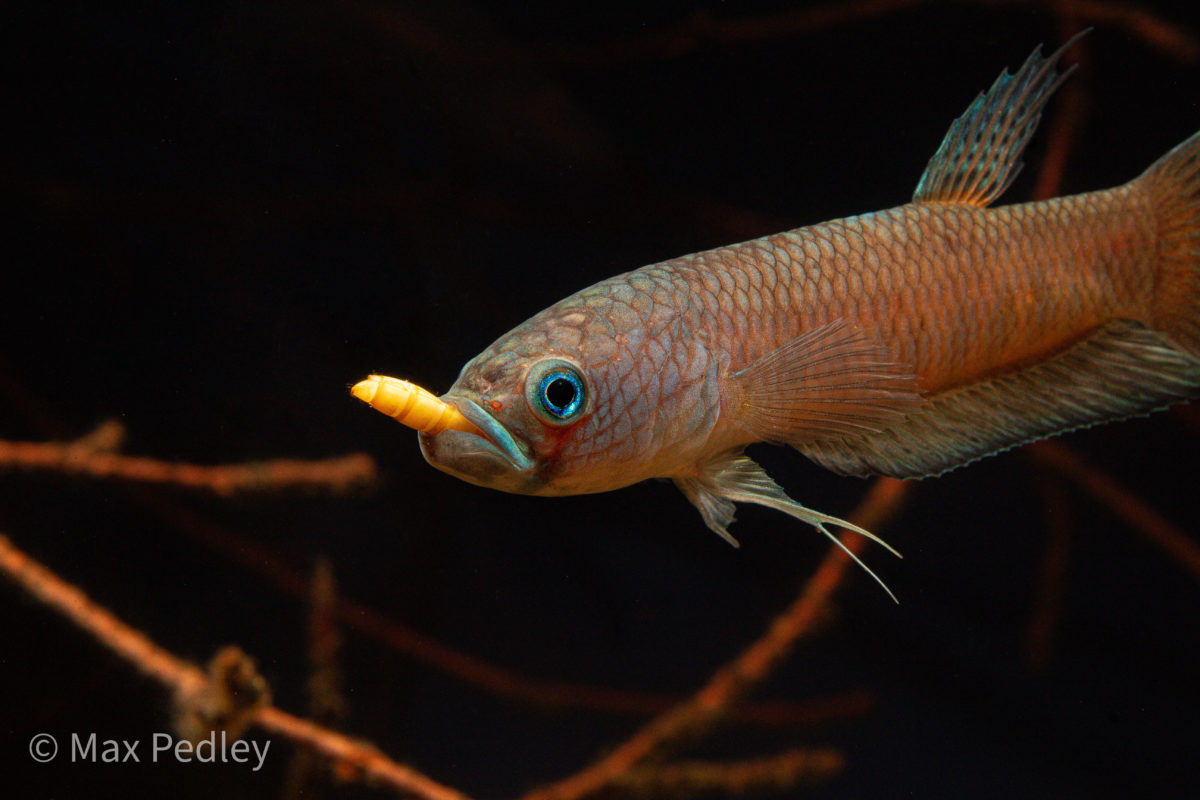
Betta patoti © Max Pedley
At Shoal we see a real opportunity for fishkeepers to help fly the flag for freshwater conservation. Their hobby after all depends on healthy freshwater environments. What can fishkeepers do to ensure their actions help protect and conserve fish and other freshwater species?
Be vocal. Encourage someone to become a fishkeeper. If you are already a fishkeeper, get your children involved. Young fishkeepers are a dying breed, but very necessary. Make sure your aquatic legacy is continued.
I can tell you what I’d love to see: more documentaries based entirely on freshwater species under threat.
We are with you there, Max. There is so much wonderful footage about marine and terrestrial challenges, but not so much focused on freshwater. Given the extent of the crisis, this is surprising. If there are any natural history film producers reading, let us see some fantastic freshwater films soon!

